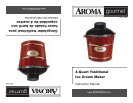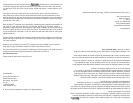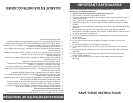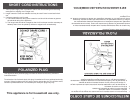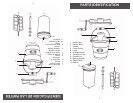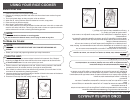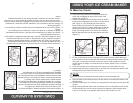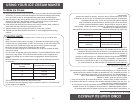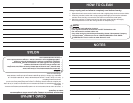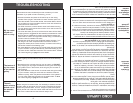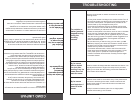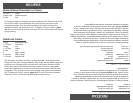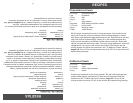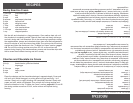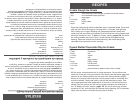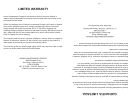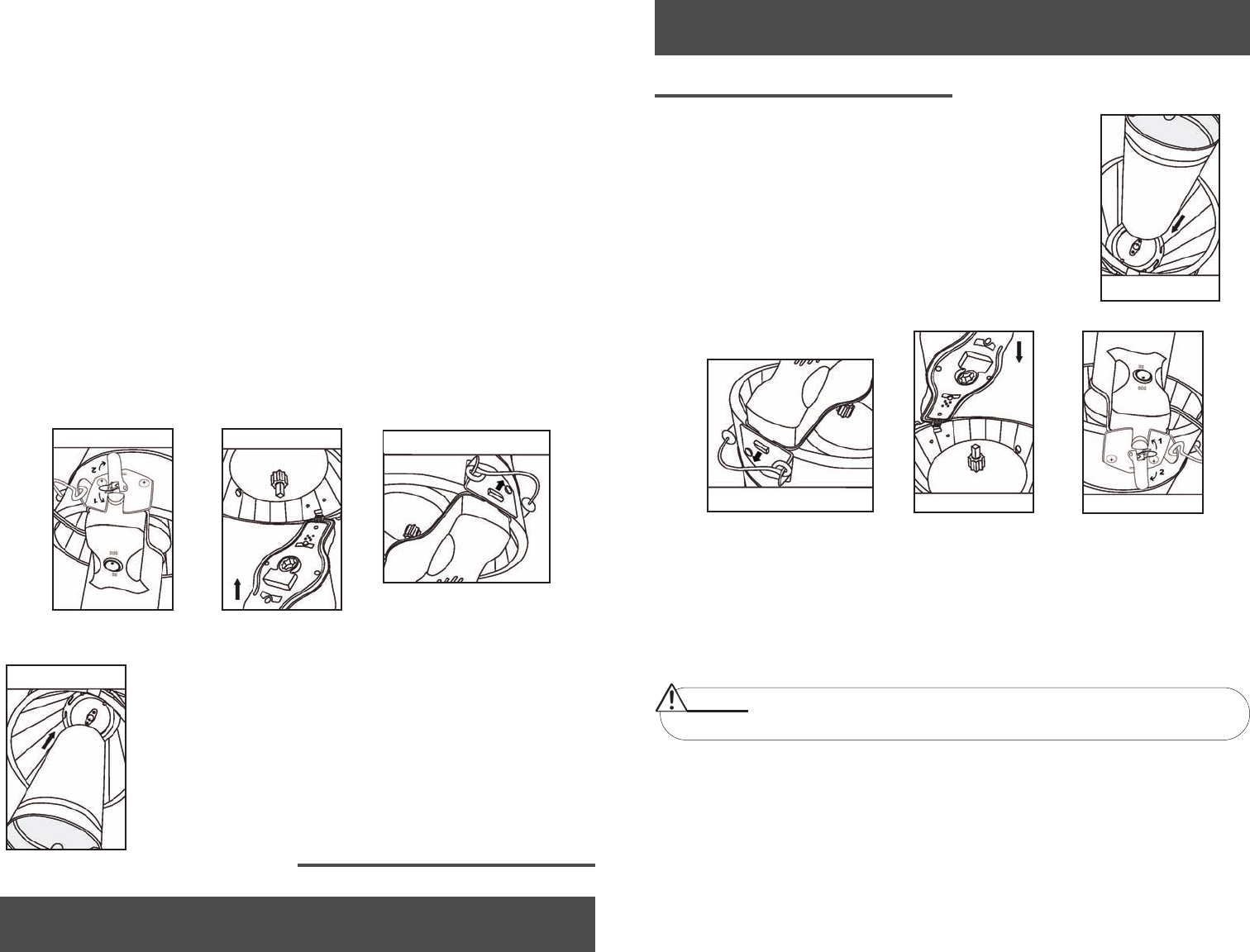
5
5
USING YOUR ICE CREAM MAKER
COMO USAR SU APARATO
5. Coloque el bote en la cubeta de madera y asegúrese de que el
cono encaje en el centro de la cubeta (vea “Dibujo 3”).
6. Deslice el extremo rectangular de la manivela manual o el motor
eléctrico en el agujero rectangular de borde de la cubeta (vea
“Dibujo 4”). El extremo opuesto de la manivela caerá dentro del
extremo abierto, donde está el cerrojo (vea “Dibujo 6”).
Suavemente levante el cerrojo a fin de que el cerrojo de alambre
pase sobre el extremo redondeado de la manivela manual o del
motor (tal vez necesite rotar el bote con la mano para que la
tapadera quede ajustada al motor y/o a la manivela (vea
“Dibujo 5”).
To Make Ice Cream:
5. Place the mixing canister in the wooden bucket and
make sure it engages the cone in the center of the
bucket (see “Figure 3”).
6. Slide the rectangular end of the hand crank or electric
motor into the rectangular hole on the rim of the bucket
(see “Figure 4”). The opposite end of the crank or
motor will drop into the open end, where the latch is
located (see “Figure 6”). Gently lift the latch so that the
wire goes over the rounded end of the hand crank or
motor. The mixing canister may need to be rotated by
hand so that the lid fits into the motor/hand crank (see
“Figure 5”).
Figure 3
Figure 6
Figure 4
Figure 5
7. If you are using the electric motor, plug the power cord into a working electrical outlet.
8. Fill the wooden bucket with a small layer of ice (about 6 cups), evenly distributed
around the base of the canister. Be sure that the ice added into the bucket is broken
into small, coarse pieces. A mallet or hammer may be used to break the ice into
smaller pieces, if needed. For each batch of ice cream, expect to use 1-2 medium
bags of ice.
9. Cover the first layer of ice evenly with a thin layer of rock salt (about 1/2 cup).
10. Repeat steps 8 through 9, layering the ice and salt until it reaches the bottom of the
drainage hole on the side of the wood bucket.
Para hacer helado:
7. Conecte el cordón eléctrico en el tomacorriente si está usando el motor eléctrico.
8. Llene la cubeta de madera con una capa de hielo (6 tazas aproximadamente).
Asegúrese que el hielo que usted ponga en la cubeta esté quebrado en piezas
pequeñas y gruesas. Tal vez necesite usar un mazo o un martillo para romper el
hielo en pedazos pequeños y gruesos. Para cada bote del helado, se espera usar 1
o 2 bolsas medianas de hielo.
9. Agregue una capa de sal de piedra encima del hielo (1/4 taza aproximadamente).
10. Repite los tramites 8 y 9 hasta que el hielo y sal llegue al nivel del agujero de
drenaje.
11. Agregue agua frío a la cubeta hasta que el parte superior del agua se iguale con el
agujero de drenaje.
12. Conforme el hielo se derrita de 2 a 3 pulgadas, agregue más hielo y sal de piedra.
13. Gire la manivela o ponga a funcionar el motor. Mientras el bote dé vueltas, revuelva
y mezcle juntos la sal y el hielo. Utilice el agitador de plástico cada 10 ó 15 minutos,
o más a menudo si es necesario, mientras esté en uso la máquina para hacer
helado.
Dibujo 3
Dibujo 4
Dibujo 6Dibujo 5
NOTE:
• Adding more ice will cause the mixture to leak out of the drainage hole.
11. Add cold water to the ice/salt mixture until the water level reaches the bottom of the
drainage hole.
12. As the ice melts down 2 to 3 inches, you may add more ice and more rock salt to the
mixture.
13. Begin cranking with the hand crank mechanism or turn on the electric motor. As the
mixing canister turns, stir and mix the salt and ice together. Use the plastic stirrer
every 10-15 minutes, or as needed, while the ice cream maker is in use.



